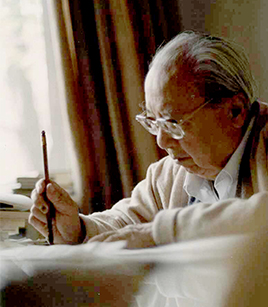Fei Xiaotong and his ‘Plurality and Unity’

FILE PHOTO: The renowned Chinese sociologist, anthropologist, and social activist, Fei Xiaotong (1910–2005)
Fei Xiaotong (1910–2005) was a renowned Chinese sociologist, anthropologist, social activist, and scholar on ethnic studies. In 1988, based on his lifelong thoughts and observations on the relationship between many ethnic groups in China, Fei put forward a new theory known as “Plurality and Unity in the Configuration of the Chinese Nationality.”
In this article, Fei applied the term “Chinese people” to refer to the population within the peripheries of China’s territory who have the unified consciousness of a nationality. This includes all the ethnic groups embodying plurality and unity at the same time: pluralistic because all the ethnic units are included, unified because together they make up the Chinese people.
Fei noted that the formation of Chinese people into a single nation has been the result of a historical process of millennia. During a long period of mutual contact, various ethnic groups that simultaneously existed, separated, and independent of each other, were mixed, aligned, or integrated, while others were divided and became extinct. Together they formed a national entity which was at once pluralistic and unified. To put it further, Fei explained that 3,000 years ago, a nucleus assembled in the middle reaches of the Yellow River and gradually melded together a number of ethnic groups. Known as Hua Xia, this nucleus attracted all groups around it, growing larger like a snowball. By the early 15th century, its domain enclosed the East Asian plain in the middle and lower reaches of the Yellow River and the Yangtze River. These people were called Hans by other ethnic groups. The ethnic entity of the Hans grew steadily by their absorption of other groups. In the meantime, groups of Hans joined the habitats of other ethnic groups, where in time they became centers of assembly. These in turn formed a network which was the foundation for the Chinese people to be unified and to emerge as a single nation.
Edited by REN GUANHONG
